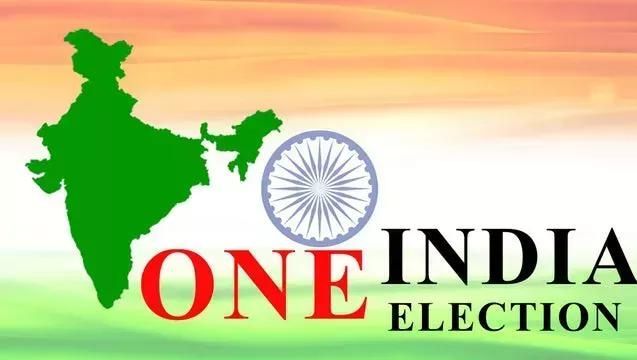One Nation One Election: The Central Government has constituted a committee regarding ‘One Nation and One Election’ at a time when a special session of Parliament has been called from September 18.
The discussion about One Nation, One Election has intensified in the country. The Central Government has constituted a committee for One Nation, One Election on Friday (September 1), which will work under the chairmanship of former President Ram Nath Kovind. The committee will explore the possibilities of holding simultaneous elections in the country.
The committee has been constituted at a time when the Center has called a special session of Parliament from September 18-22. According to the news of India Today, the central government is preparing to introduce several important bills during this period, including One Nation One Election. Today we will know about the advantages and disadvantages of One Nation One Election, but before that let us know what it is and why it is so special for BJP.
Meaning of one country one election
The idea of ’one country, one election’ is to hold elections simultaneously in the country. This means that Lok Sabha elections across India and Assembly elections in all states will be held simultaneously. Voting for both the elections will probably happen simultaneously or nearby. At present, elections for the Lok Sabha and the State Assembly are held separately after the government completes its five-year term or the legislature is dissolved due to various reasons.
Why One Nation, One Election is important for BJP
Prime Minister Narendra Modi and other BJP leaders have discussed simultaneous elections in the country on several occasions. In 2014, it has also been a part of BJP’s election manifesto. According to NDTV report, page number 14 of BJP’s election manifesto read, “BJP is committed to initiate electoral reforms to eliminate criminals. BJP will conduct assembly and Lok Sabha elections through consultation with other parties.” “Will try to develop a method to get it done together.” According to the manifesto, this will ensure stability for the state governments besides reducing election expenses.
advantages of simultaneous election
The strongest argument in favor of holding simultaneous elections in the country is to reduce the huge amount spent on separate elections. India Today has told in its reports that Rs 60,000 crore was spent in the 2019 Lok Sabha elections . This includes the expenditure of political parties contesting elections and the amount spent by the Central Election Commission.
An argument is given in support of simultaneous elections that this will make the administrative system smooth. During the election, the officers are engaged in election duty, due to which the normal administrative work gets affected.
The Law Commission has predicted an increase in polling
For the last few years, it has been seen that every year elections are held somewhere or the other. Due to elections, code of conduct is implemented in these states, due to which new public welfare schemes are banned during that time. Holding simultaneous elections will ensure continuity in the policies and programs of the Center and the state.
The Law Commission has said that holding elections together will increase the turnout, as it will be more convenient for voters to go out to vote in one go.
What will have to be done for one country one election?
Constitutional amendments will have to be made to hold Lok Sabha and Rajya Sabha elections simultaneously. Besides, the Representation of the People Act and other parliamentary procedures will also have to be amended. Let us know, what changes have to be made for this?
- To bring One Nation One Election Bill, support of 16 assemblies will be required, that is, first its proposal will have to be passed in the assemblies of 16 states of the country.
- The bill can be brought only under the Representation of the People Act, 1951. There will have to be changes in that.
- Articles 83, 85, 172, 174 and 356 of the constitution will have to be amended with a two-thirds majority.
apprehensions about simultaneous elections
The big fear of regional parties is that they will not be able to raise their local issues strongly because national issues will come to the center stage. Apart from this, they will not be able to compete with national parties in terms of election expenditure and election strategy.
What does the survey say?
India Today quoted a 2015 survey by the IDFC Institute as saying that if elections are held simultaneously, there is a 77 per cent chance that voters will elect the same political party or alliance in the state assembly and the Lok Sabha. On the other hand, if elections are held at a gap of six months, then only 61 percent of the voters will choose a party.
